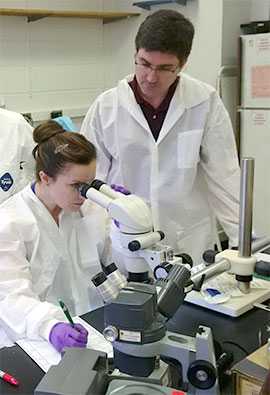Division of Bacterial Diseases (DBD) News Bulletin
Summer 2015
In This Issue
- Exploring Meningococcal Outbreaks & Carriage
- White House Forum on Antibiotic Stewardship
- New EIS Officers & LLS Fellow
- DBD Supports the Ebola Response
- MenAfriNet Partners Respond to Niger Outbreak
- Laboratory & Communications
- Vaccine News & Meetings
- Awards
- Epi-Aids & Outbreak Investigations
- Publication Highlights
Epi-Aids & Outbreak Investigations
Meningococcal carriage study Epi-Aid—Rhode Island, February & April 2015. A team of epidemiology and laboratory staff was deployed to conduct a Neisseria meningitidis carriage evaluation following a serogroup B outbreak at a college.
Meningococcal carriage study Epi-Aid—Oregon, March & May 2015. A team of epidemiology and laboratory staff was deployed to conduct a Neisseria meningitidis carriage evaluation following a serogroup B outbreak at a university.
Meningococcal carriage study Epi-Aid—Rhode Island, March & April 2015. A team of epidemiology and laboratory staff was deployed to conduct a Neisseria meningitidis carriage evaluation at a university in Rhode Island not experiencing an outbreak.
Group A Streptococcal cluster Epi-Aid—Conway, South Carolina, March 2015. A team was deployed to assist the South Carolina Department of Health and Environmental Control in determining the extent of an outbreak in a long-term care facility, evaluating infection control practices, and implementing control and prevention measures.

Photo: Anna Llewellyn (RDB LLS Fellow) and Jeff Mercante (RDB Microbiologist) examine environmental sample isolates during the NYC Legionnaires’ disease outbreak investigation.
Legionnaires’ Disease outbreak— Bronx, New York, August, 2015. A team of epidemiology, laboratory, and environmental health staff was deployed to help investigate and respond to a large community-associated cooling tower outbreak of Legionnaires’ disease.
Meningococcal disease outbreak—Niger, April–June 2015. A team of 6 CDC staff was deployed to Niger to provide epidemiologic and laboratory support in response to the largest serogroup C meningococcal disease outbreak in Africa.
Meningococcal disease outbreak Epi-Aid—Chicago, Illinois, June 2015. A team was deployed to assist the Chicago Department of Public Health in better targeting vaccination campaigns in response to a serogroup C meningococcal disease outbreak by conducting a knowledge, behaviors and practices survey among targeted populations.
Pneumococcal carriage study Epi-Aid—Texas, August, 2015. In July 2014, an outbreak of severe respiratory illness occurred among unaccompanied children, mostly adolescents, crossing the U.S.-Mexico border and residing in shelters operated by HHS’ Office of Refugee Resettlement. The outbreak involved multiple etiologies, including influenza and Streptococcus pneumoniae serotype 5, a serotype that rarely causes disease among U.S.-borne children. Rapid implementation of influenza vaccine and 13-valent pneumococcal conjugate vaccine (PCV13) led to interruption of transmission and there were no additional cases for the remainder of the summer. Since then, however, the number of children crossing the U.S.-Mexico border has declined dramatically and crowding in shelters has been greatly relieved. To determine whether continued use of PCV13 is necessary, a team was deployed to conduct a pneumococcal carriage study among currently arriving children who are first staying in shelters.
Top of Page- Page last reviewed: September 28, 2015
- Page last updated: September 28, 2015
- Content source:


 ShareCompartir
ShareCompartir